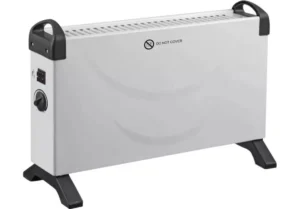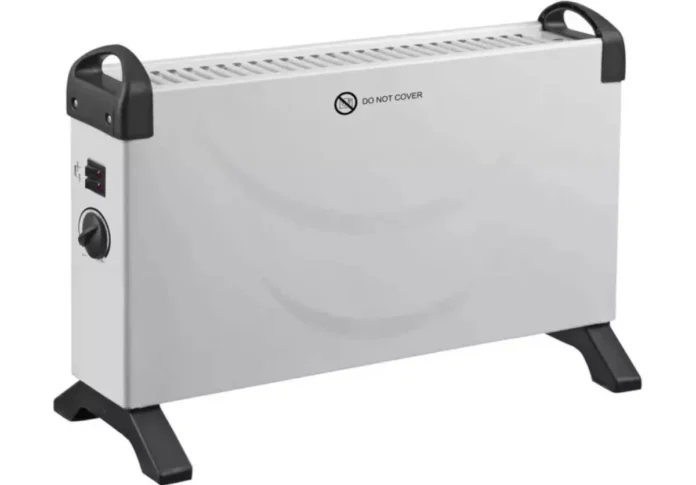
January is already coming to an end, but unfortunately the weather continues. Following the brutal onslaught of storms Isa and Joslin, Britons are now expecting the country to be colder than Iceland, with temperatures expected to drop as low as -6C. A warning has also been issued that snow will “cover large parts of the UK”. But as energy costs continue to rise, staying warm can cost a lot of money. Indeed, more than 450,000 households are expected to experience “energy poverty” as a result of January’s price caps. Here, households spend more than 10% of their income on heating. But shoppers are now raving about devices that can instantly heat up large rooms. And it’s on sale now.
Brits are flocking to Argos to get their hands on the Challenge 2kW convection heater. This heater has been reduced from £30 to £19 at the time of writing. The thermostatically controlled device has three heating levels, a safety switch and a heating output of 2 kW. There are thousands of 5-star reviews and 95% of buyers recommend this product. “We love this radiator. It fits perfectly in small spaces. This is our second one, and we love it because it makes the room so much warmer and cozier,” said one shopper. Another user commented: My house is very cozy and warm. ” A third added: “I bought it to heat a large room and now it’s so warm.” According to Uswitch, his 2kW heater, which is below the January price cap, will cost around £1.14 for two hours of use. This equates to £8.01 per week or £416 per year. This average value was used because you may use your heating appliance a lot in the fall and winter, but not at all when the weather is nice. Also note that although portable heaters can create a cozy and cozy atmosphere, they should not be used as a complete replacement for central heating to ensure that every room in the house does not get too cold. please. If you want to further reduce your energy costs, experts at the Energy Saving Trust recommend turning your thermostat down just once. This could potentially reduce your bill by up to 10%.

